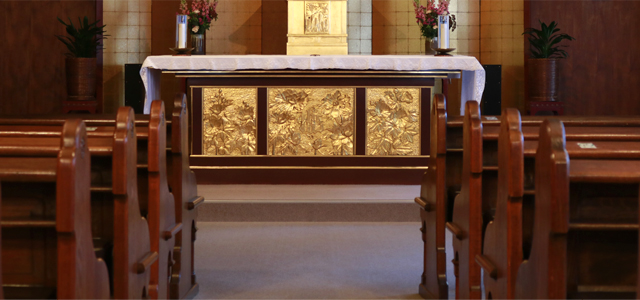
Catholic Q&A
Would it be okay to read the account of the resurrection presented in the Bible as a work of literature? As a metaphor for the message of hope the resurrection of Jesus is beautiful and easily explicable. Is it necessary for me to understand it as something historical?
It is most certainly permissible to read the Bible as literature, and I think many do so. If in doing so you are able to gain some lessons for life, it would be beneficial. However for Christian people the resurrection of Jesus is more than just a metaphor. It is a real event that occurred in history. The problem however lies in the “historicity” of the resurrection of Jesus. What does “historical” mean? Let us ponder a little over this issue.
If we are able to confirm the matter empirically, if we use the word “historical” to refer only to issues that are objects of historical research, the resurrection of Jesus in that sense would not be viewed as historical. Yet, the fact that there were disciples who testified that they had met the resurrected Jesus, is historical.
Those disciples were weak and unreliable people who forsook Jesus and fled, when their teacher was seized and sentenced to death. Yet, through their experience of encountering the resurrected Lord, those people were totally transformed. With a conviction of faith that no scholar can refute, they testified forcefully with regard to the resurrection of Jesus. Also, through preaching with a courage that none in power could subdue they enabled the Church to be born, and the Church thereupon spread around the world, with an explosive momentum that no persecution could suppress. These are historical facts.
These are not facts that can be brushed aside by the use of psychological and subjective rationalizations, such as for instance what those disciples saw was merely an illusion of their deceased teacher, or that they were just being delusional. Indeed, an event of some sort really occurred, and the disciples seem to have had an objective experience of it.
Well, what exactly did those disciples experience? And in what way did they understand the “resurrection?
Fortunately, the New Testament conveys to us the testimony of the disciples, and by studying this testimony we can at least gain an insight into the experiences the disciples underwent, and the concept of “resurrection” as they understood it. In other words, irrespective of whether people believe it or not, the content of their testimony can be confirmed both historically and empirically.
I have no desire to introduce arguments for every passage of the Bible. Yet by summarizing just the conclusions, I think we can assert the following. The disciples somehow or other met the same Jesus whom they had known in their lifetime. Jesus had now risen into the glory of God, and by transcending space and time he was with them, and he had the experience of working with them. The disciples perceived that the Almighty God had raised Jesus from the dead, and by so doing he revealed the fact that he was God the Father. They realized that Jesus Christ was the mediator and only son of the Father, and by being united with Jesus, all of us are invited to the fellowship of life with the Father.
There is no historical proof of the resurrection other than this, and from here onwards it becomes a matter of faith. The testimony of the disciples is not something demanding a ‘yes’ or a ‘no’, and it is not something that can be forced on people, compelling them to accept it.
Nevertheless though, accepting this testimony, that is to say, believing in the resurrection of Jesus, is by no means a kind of blind faith of the type, “faith can make even a sardine sacred.” The fact that people can believe in it is because it responds to the deepest queries concerning the meaning of life, that lie within our hearts. That faith possesses the power to actually transform our lives, and it provides us with a genuine experience of being alive.
